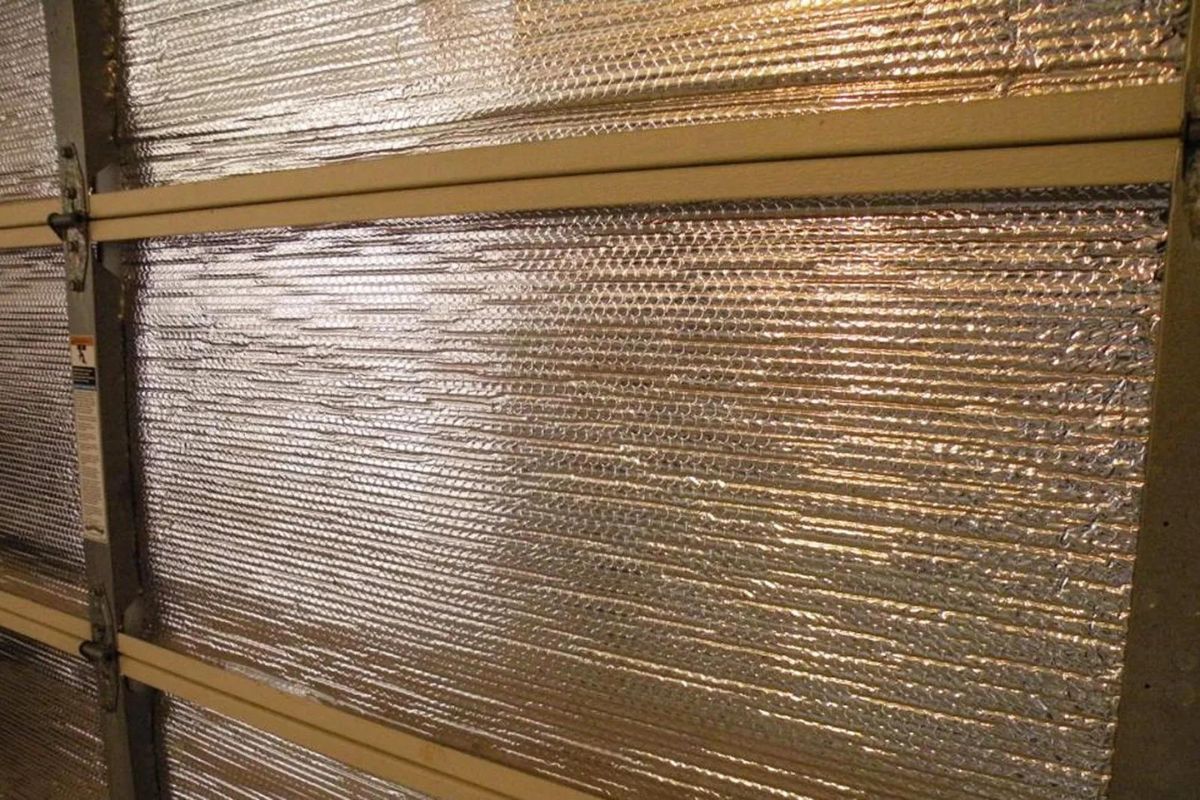

Articles
What Is The Best Insulation For Garage Doors
Modified: August 17, 2024
Discover the best insulation for garage doors in our comprehensive articles. Find out how to improve energy efficiency and reduce noise.
(Many of the links in this article redirect to a specific reviewed product. Your purchase of these products through affiliate links helps to generate commission for Storables.com, at no extra cost. Learn more)
Introduction
When it comes to insulating your garage doors, it’s essential to choose the best insulation material that suits your needs. Insulating your garage doors not only helps to regulate the temperature inside your garage but also plays a significant role in energy efficiency and reducing noise pollution.
There are several factors to consider when selecting the right insulation for your garage doors, including the insulation material, R-value, thickness, garage door type, and climate conditions. Each of these factors will influence the effectiveness and performance of the insulation. By understanding these factors, you can make an informed decision that will maximize the benefits of insulation.
Insulation material is perhaps the most critical factor to consider. Different materials offer varying levels of insulation and have different installation methods. The R-value, which measures the insulation’s thermal resistance, will determine how well the insulation can resist heat flow. The higher the R-value, the better the insulation’s ability to regulate temperature. The thickness of the insulation is also significant, as thicker insulation provides better insulation properties.
The type of garage door you have will impact the choice of insulation as well. Different garage door materials, such as steel, wood, or aluminum, may require specific types of insulation. Additionally, the climate and location of your garage play a vital role in determining the level of insulation required. Colder climates will demand higher insulation properties to keep the garage warm, while warmer climates may prioritize insulation that can reflect heat and keep the garage cooler.
In this article, we will explore the best insulation options for garage doors to help you make an informed decision. Whether you are looking for the most efficient insulation or need insulation that fits your budget, we’ve got you covered. Let’s dive into the world of garage door insulation and find the best solution for your needs.
Key Takeaways:
- Choose the Right Insulation Material
Selecting the best insulation material for your garage doors is crucial. Consider factors such as R-value, thickness, and climate to make an informed decision that maximizes energy efficiency and comfort. - Prioritize Polyurethane Insulation
Polyurethane insulation offers exceptional thermal resistance, durability, and noise reduction. It provides superior energy efficiency and structural benefits, making it a worthwhile investment for your garage doors.
Read more: How To Install Insulation On Garage Door
Factors to Consider
Before delving into the best insulation options for garage doors, it’s important to understand the key factors that should guide your decision-making process. Considering these factors will help you select the insulation that best suits your garage’s specific requirements and conditions.
1. Insulation Material
The insulation material is a crucial aspect to consider as it directly impacts the insulation’s effectiveness. Common insulation materials for garage doors include polystyrene, polyurethane, fiberglass, and reflective foil. Each material has its own set of advantages and disadvantages, so it’s important to weigh the pros and cons before making a choice.
2. R-Value
The R-value of the insulation refers to its thermal resistance. A higher R-value signifies better insulation performance and the ability to resist heat flow. It is essential to choose an insulation material with an appropriate R-value based on your climate requirements. Colder climates typically require higher R-values to ensure optimal thermal insulation.
3. Thickness
The thickness of the insulation is directly related to its insulating capabilities. Thicker insulation generally provides better insulation properties, but it may also impact the overall weight and operation of the garage door. Consider the available space and the insulation’s thickness while ensuring it doesn’t interfere with the proper functioning of the garage door.
Read more: How To Tell If Garage Door Is Insulated
4. Garage Door Type
The type of garage door you have will impact your insulation options. Different garage door materials, such as steel, wood, or aluminum, may require specific types of insulation. Additionally, the design and construction of the garage door may influence the installation method and the compatibility of certain insulation materials.
5. Climate and Location
The climate and location of your garage are crucial factors to consider when choosing insulation. If you live in a region with extreme temperatures, you may require insulation with higher thermal resistance. For warmer climates, insulation that reflects heat may be more suitable. Additionally, consider factors such as humidity, wind exposure, and potential moisture issues that may impact the insulation’s effectiveness.
By taking these factors into account, you can make a well-informed decision and select the insulation that aligns with your garage’s specific needs. Each factor plays a role in determining the insulation material, R-value, thickness, and installation method that will optimize energy efficiency, temperature regulation, and noise reduction in your garage.
Insulation Material
When it comes to insulating your garage doors, choosing the right insulation material is crucial. Different insulation materials offer varying levels of thermal resistance, durability, and cost-effectiveness. Let’s explore some of the most commonly used insulation materials for garage doors:
Polystyrene Insulation:
Polystyrene is a popular insulation material for garage doors due to its affordability and ease of installation. It is available in two forms: expanded polystyrene (EPS) and extruded polystyrene (XPS). EPS is a lightweight foam board that provides moderate insulation. XPS, on the other hand, offers higher insulation values and increased moisture resistance. Both types are known for their ability to resist heat flow and reduce noise transmission.
Read more: What Insulation Is Best For Garage Walls
Polyurethane Insulation:
Polyurethane insulation is renowned for its exceptional insulation properties. It consists of a foam material that expands and fills all the nooks and crannies of the garage door panel. This type of insulation provides a higher R-value compared to other materials, making it highly effective in regulating temperature. Polyurethane insulation also adds structural strength to the door, improving its durability and resistance to dents.
Fiberglass Insulation:
Fiberglass insulation is another popular choice for garage doors. It consists of glass fibers packed tightly together, creating an insulation batt or blanket. Fiberglass insulation offers good thermal resistance and noise reduction capabilities. It is commonly available in rolls or batts and is relatively easy to install. However, it is important to handle fiberglass insulation with care as the fibers can cause irritation if inhaled or come into direct contact with the skin.
Reflective Foil Insulation:
Reflective foil insulation consists of a layer of foil that reflects radiant heat away from the garage. It is typically installed on the inside of the garage door panels. This type of insulation is most effective in hot climates, as it helps to reduce heat transfer and keep the garage cooler. Reflective foil insulation is lightweight and easy to install, making it a convenient option for DIY enthusiasts.
Each insulation material has its own unique characteristics, advantages, and limitations. Consider factors such as budget, insulation requirements, and climate conditions when choosing the right insulation material for your garage doors. It is also advisable to consult with a professional or seek recommendations from manufacturers to determine the best insulation material for your specific needs.
R-Value
The R-value is a crucial factor to consider when choosing insulation for your garage doors. It measures the insulation material’s thermal resistance, indicating its ability to resist heat flow. The higher the R-value, the better the insulation’s efficiency in preventing heat transfer.
When selecting insulation for your garage doors, it is important to match the R-value to your specific climate conditions and insulation requirements. Colder climates require higher R-values to keep the garage warm during winter, while warmer climates may prioritize insulation that can reflect heat and keep the garage cooler.
Various factors can influence the recommended R-value for your garage door insulation:
Read more: What Is The Best Garage Door Opener
Climate:
The climate in your area is a primary consideration when determining the appropriate R-value for your garage door insulation. If you live in a region with harsh winters or extreme temperature fluctuations, a higher R-value insulation will help maintain a more comfortable temperature inside the garage and minimize heat loss.
Usage of the Garage:
Consider how you use your garage. If you use it as a living space, workshop, or for activities that require a more regulated temperature, a higher R-value insulation is recommended. On the other hand, if you primarily use your garage for car storage or general storage purposes, a lower R-value insulation may suffice.
Adjacent Spaces:
Take into account any adjacent spaces to the garage, such as rooms or living areas. If your garage shares walls with these spaces, it’s essential to choose insulation with a suitable R-value to prevent heat transfer and maintain a comfortable environment in these areas.
Existing Insulation:
If your garage already has some form of insulation, consider the current R-value and assess if it needs to be augmented. Upgrading or adding additional insulation layers can help improve energy efficiency and temperature regulation.
Consulting with experts or manufacturers can provide valuable guidance in determining the appropriate R-value for your specific circumstances. Ultimately, the goal is to choose an insulation material with a suitable R-value that helps maintain desired temperature levels, reduces energy consumption, and improves overall comfort in your garage.
Read more: How To Insulate A Roll Up Garage Door
Thickness
When insulating your garage doors, the thickness of the insulation material plays a significant role in its effectiveness. The thickness determines the insulation’s ability to resist heat flow and provides better thermal regulation for your garage.
Here are some considerations when it comes to choosing the thickness of your garage door insulation:
Insulation Properties:
Thicker insulation generally offers better insulation properties as it has a higher density and provides more resistance to heat transfer. It helps create a barrier to prevent the transfer of heat between the inside and outside of your garage.
Consider the available space in your garage door for insulation. If your garage door has limited space between the panels, you may need to opt for thinner insulation options. On the other hand, if there is enough space, you can choose thicker insulation to maximize its thermal resistance.
Garage Door Weight:
Thicker insulation may add weight to your garage door. It’s essential to ensure that the added weight does not strain the garage door’s springs or affect its balance and smooth operation. Consult with professionals or manufacturers to determine if your garage door can support the thickness of insulation you plan to install.
Climatic Conditions:
The climate in your region can also influence the ideal thickness of garage door insulation. In colder climates, thicker insulation is generally recommended to provide better thermal resistance and maintain a warmer temperature in the garage. In warmer climates, a thinner insulation option may be sufficient to minimize heat transfer.
It’s important to strike a balance between insulation thickness, energy efficiency, and the functionality of your garage door. Thicker insulation provides better insulation properties but may impact the garage door’s operation, especially if there is limited space available. Ensure that the chosen insulation thickness suits your specific needs and does not compromise the garage door’s performance.
Consulting with professionals or manufacturers will help you determine the appropriate thickness of insulation that aligns with your garage door’s capacity and provides the desired level of insulation for your garage.
Read more: What Insulation For Garage Ceiling
Garage Door Type
The type of garage door you have is an important factor to consider when selecting insulation. Different garage door materials and designs require specific types of insulation that provide the best fit and performance. Understanding your garage door type will help you choose the most suitable insulation option.
Steel Garage Doors:
Steel garage doors are a common choice due to their durability and affordability. When insulating steel garage doors, two common options are typically used: polystyrene and polyurethane insulation. Polystyrene insulation can be cut and fit into the garage door panels, providing decent insulation and noise reduction. Polyurethane insulation, on the other hand, is sprayed or injected into the door panels, offering better insulation properties and increased structural strength.
Wooden Garage Doors:
Wooden garage doors offer a classic and stylish look but tend to have less inherent insulation value. To insulate wooden garage doors, you can use various options such as polystyrene or polyurethane insulation. These insulation materials can be applied by attaching insulation panels to the inside surface of the door, providing insulation and improving energy efficiency.
Aluminum Garage Doors:
Aluminum garage doors are lightweight and relatively affordable. However, aluminum is a poor insulator, making insulation crucial for thermal regulation. Common insulation options for aluminum garage doors include reflective foil insulation, which helps reflect radiant heat away from the garage, or polystyrene insulation, which can be attached to the inside surface of the door.
Read more: How Much Does An Insulated Garage Door Cost
Custom Garage Doors:
Custom garage doors, including those made of glass or composite materials, may require specialized insulation solutions. Consult with the manufacturer or a professional to determine the most suitable insulation option for your custom garage doors. It may involve using specific insulation materials or customizing the installation process to ensure effective insulation.
Understanding the characteristics and requirements of your garage door type will help you select the appropriate insulation that complements the door’s construction and materials. It is essential to consider the compatibility of the insulation with the garage door type to ensure proper fitment and optimal insulation performance.
Consulting with professionals or manufacturers who have expertise in garage door insulation will provide you with valuable insights and recommendations for the best insulation options for your specific garage door type.
Climate and Location
The climate and location of your garage play a significant role in determining the insulation requirements for your garage doors. Different climate conditions and geographic locations have unique considerations that influence the choice of insulation for optimal performance and energy efficiency.
Colder Climates:
In regions with colder climates, insulation with higher thermal resistance is crucial to maintain a comfortable temperature inside the garage and prevent heat loss. Insulation with a higher R-value, such as polyurethane or thick polystyrene, is recommended. These materials provide effective insulation by minimizing heat transfer and reducing energy consumption. Additionally, weatherstripping around the garage door can help seal any gaps and further improve insulation in cold climates.
Warmer Climates:
In warmer climates, the focus is often on keeping the garage cool and reducing heat transfer from the outside. Reflective foil insulation is an excellent option for warmer climates as it reflects radiant heat away from the garage. This type of insulation is typically installed on the inside of the garage door panels to create a barrier against heat. It helps maintain a cooler temperature in the garage and minimizes the energy needed for cooling.
Read more: Who Makes The Best Garage Door
Humid Locations:
In humid locations, moisture resistance is a vital consideration. Garage doors in these areas are more susceptible to moisture buildup, which can lead to mold and mildew growth. Insulation materials such as polyurethane or fiberglass are good options for humid locations as they offer good moisture resistance. Proper ventilation and dehumidification methods should also be implemented to prevent moisture-related issues.
High Wind Areas:
In areas prone to strong winds, it is important to select insulation that can withstand the forces exerted by the wind. Secure insulation materials that can be firmly attached or adhered to the garage door panels. Reinforcing the garage door structure and using wind-resistant insulation options, such as polyurethane, can help enhance the resilience of the door against strong winds.
Considering the climate conditions and specific location of your garage will ensure that you choose insulation materials and methods that are best suited for your environment. By selecting the appropriate insulation, you can create a more comfortable and energy-efficient space while protecting your garage and its contents from the effects of weather conditions.
Consulting with professionals or local experts in insulation and climate conditions can provide valuable insights and guidance in selecting the most suitable insulation options for your garage doors.
Best Insulation Options for Garage Doors
Now that we have explored the factors to consider when selecting insulation for your garage doors, let’s dive into some of the best insulation options available. These options provide excellent insulation properties, energy efficiency, and noise reduction for your garage.
1. Polystyrene Insulation:
Polystyrene insulation is a cost-effective and popular choice for garage doors. It comes in two forms: expanded polystyrene (EPS) and extruded polystyrene (XPS). EPS insulation provides moderate insulation value, while XPS insulation offers higher R-values and increased moisture resistance. Polystyrene insulation is relatively easy to install and provides good thermal resistance and noise reduction.
Read more: What Paint To Use For Garage Door
2. Polyurethane Insulation:
Polyurethane insulation is known for its exceptional insulation properties and increased structural strength. It is injected or sprayed into the garage door panels, expanding to fill all the nooks and crannies. Polyurethane insulation has a high R-value and effectively minimizes heat transfer, making it highly energy-efficient. It also adds rigidity to the door and helps to reduce noise transmission.
3. Fiberglass Insulation:
Fiberglass insulation is another popular option for garage door insulation. It comprises fine glass fibers packed tightly together. Fiberglass insulation offers good thermal resistance and noise reduction. It comes in the form of rolls or batts and is relatively easy to install. Handling fiberglass insulation requires caution to avoid skin irritation, so be sure to wear protective gear during installation.
4. Reflective Foil Insulation:
Reflective foil insulation is an ideal choice for warmer climates or locations with excessive heat. This insulation consists of a layer of reflective foil that reflects radiant heat away from the garage. It acts as a barrier, reducing heat transfer from outside and keeping the garage cooler. Reflective foil insulation is lightweight, easy to install, and does not require special handling.
Each of these insulation options has unique features and benefits, so it’s important to consider your specific requirements and budget. Consult with professionals or insulation experts to determine the best option for your garage doors, taking into account factors such as climate, garage door type, and desired insulation performance.
Remember that proper installation is crucial for insulation effectiveness. Follow manufacturer guidelines, or consider hiring a professional installer to ensure the insulation is correctly installed, creating a well-insulated and energy-efficient garage space.
Polystyrene Insulation
Polystyrene insulation is a popular and cost-effective option for insulating garage doors. It is available in two forms: expanded polystyrene (EPS) and extruded polystyrene (XPS). Polystyrene insulation offers good thermal resistance and noise reduction, making it an excellent choice for enhancing the energy efficiency and comfort of your garage.
Read more: What Battery For Garage Door Opener
Expanded Polystyrene (EPS) Insulation:
EPS insulation is lightweight and easy to work with, making it a popular choice for homeowners. It consists of small foam beads that are expanded and then fused together to form rigid insulation boards. EPS insulation has good insulation properties and provides moderate R-values, typically ranging from R-3.6 to R-4.2 per inch of thickness. It offers effective thermal insulation and helps to reduce noise transmission.
EPS insulation boards can be cut to fit and easily installed on the inside of the garage door panels. They are available in various thicknesses, allowing you to choose the appropriate level of insulation based on your specific needs. EPS insulation is also resistant to moisture, preventing issues such as mold and mildew growth. Additionally, it has a low environmental impact as it is made of recyclable materials.
Extruded Polystyrene (XPS) Insulation:
XPS insulation is a denser and more rigid form of polystyrene insulation. It offers higher R-values, typically ranging from R-4.5 to R-5 per inch of thickness. The manufacturing process of XPS insulation involves extruding polystyrene through a mold, resulting in a closed-cell structure that enhances its thermal resistance.
XPS insulation provides superior insulation performance, improved moisture resistance, and increased strength. It effectively reduces heat transfer and energy loss in your garage. XPS insulation boards are also lightweight and easy to handle, allowing for straightforward installation on garage door panels. Due to its higher R-value and enhanced properties, XPS insulation may be more expensive than EPS insulation.
When choosing polystyrene insulation, consider factors such as the climate in your area, desired insulation performance, and budget. EPS insulation is a cost-effective option that offers decent insulation and noise reduction properties. If you require higher insulation values and improved moisture resistance, XPS insulation may be the better choice.
Consulting with professionals or insulation manufacturers can provide invaluable guidance in selecting the appropriate polystyrene insulation for your garage doors. They can help determine the recommended thickness and offer installation tips to ensure optimal insulation performance.
Polyurethane Insulation
Polyurethane insulation is a highly effective option for insulating garage doors. It is known for its excellent thermal resistance, durability, and structural benefits. Polyurethane insulation is commonly used in residential and commercial applications to enhance energy efficiency and improve the overall performance of garage doors.
Polyurethane insulation is typically applied as a foam material that expands and fills all the nooks and crannies of the garage door panels. This installation method ensures a tight seal, minimizing air leakage and maintaining consistent temperature control. The foam insulation also adds structural strength to the door, improving its durability and resistance to dents.
One of the key advantages of polyurethane insulation is its high R-value. It provides superior insulation compared to other materials, with R-values ranging from R-6 to R-8 per inch of thickness. This means that polyurethane insulation offers exceptional thermal performance, reducing heat transfer and energy loss in the garage.
Another benefit of polyurethane insulation is its ability to minimize noise transmission. The foam material absorbs sound waves, reducing the level of noise coming from both inside and outside the garage. This can be particularly beneficial if you use your garage as a workshop or living space and want to reduce noise disturbances.
Furthermore, polyurethane insulation is resistant to moisture, preventing issues such as mold and mildew growth. This makes it suitable for areas with high humidity or climates prone to moisture accumulation. The moisture resistance ensures that the insulation retains its thermal performance and structural integrity over time.
It’s important to note that polyurethane insulation requires professional installation. It is typically sprayed or injected into the garage door panels by experienced installers to ensure proper placement and optimal coverage. This ensures that the insulation fully fills the panel cavities, providing maximum thermal resistance.
While polyurethane insulation offers excellent performance, it does come at a higher cost compared to other insulation materials. However, the long-term energy savings and improved comfort make it a worthwhile investment, especially if you plan to use your garage as a living space or have specific temperature control requirements.
Consulting with professionals or garage door manufacturers can provide valuable insights and recommendations on the best polyurethane insulation options available for your specific garage door. They can also assist with the proper installation of the insulation to ensure optimal performance.
Fiberglass Insulation
Fiberglass insulation is a commonly used and cost-effective option for insulating garage doors. It offers good thermal resistance and noise reduction, making it a popular choice for homeowners seeking to improve energy efficiency and create a more comfortable environment in their garages.
Fiberglass insulation consists of fine glass fibers that are tightly packed together to create insulation batts or rolls. These batts or rolls can be easily installed on the inside of the garage door panels, providing an effective barrier against heat transfer and reducing energy loss.
One of the advantages of fiberglass insulation is its versatility. It is available in various thicknesses and R-values, allowing you to choose the insulation level that suits your specific needs. Fiberglass insulation typically has R-values ranging from R-3.2 to R-4.3 per inch of thickness, providing decent insulation properties.
Installation of fiberglass insulation is relatively straightforward, making it an attractive option for DIY enthusiasts. The insulation batts or rolls can be cut to fit the garage door panels and secured in place using adhesive or staples. However, it’s crucial to handle fiberglass insulation with care, as the tiny glass fibers can irritate the skin and respiratory system. Wearing protective clothing, gloves, and a mask is recommended during installation.
In addition to its insulating properties, fiberglass insulation also offers some degree of soundproofing. It helps reduce noise transmission from the outside, making your garage a quieter and more peaceful space, especially if you use it for activities that require minimal noise disturbances.
It’s important to note that fiberglass insulation is not resistant to moisture. If your garage is prone to moisture issues or located in a humid climate, you may need to consider additional moisture barriers or choose an insulation material with better moisture resistance.
When selecting fiberglass insulation, consider factors such as the desired R-value, budget, and ease of installation. Fiberglass insulation is a cost-effective option that provides satisfactory thermal performance and noise reduction. If installed properly, it can significantly improve the energy efficiency of your garage, resulting in cost savings on heating and cooling expenses.
If you’re unsure about the installation process or require specific advice related to your garage door and insulation needs, consulting with professionals or manufacturers can provide valuable guidance and ensure that you choose the most appropriate fiberglass insulation for your garage doors.
Read more: What Kind Of Lubricant For Garage Door
Reflective Foil Insulation
Reflective foil insulation is a specialized type of insulation that is particularly effective in hot climates or for garage doors that are exposed to excessive heat. It works by reflecting radiant heat away from the garage, keeping the interior cooler and reducing the need for excessive cooling systems.
Reflective foil insulation is typically made up of multiple layers of aluminum foil, which acts as a reflective surface. These layers are sandwiched between other materials, such as foam or bubble wrap, to provide added insulation. The foil reflects radiant heat back, preventing it from entering the garage and raising the temperature.
One of the key benefits of reflective foil insulation is its ability to reduce heat transfer. By reflecting radiant heat, it helps to maintain a more comfortable temperature inside the garage, even in hot weather conditions. This can be particularly advantageous in regions with high temperatures or areas where the garage is exposed to direct sunlight for extended periods.
Another advantage of reflective foil insulation is its lightweight and easy installation process. It usually comes in rolls or sheets, making it simple to cut and install on the garage door panels. Its flexible nature allows it to conform to the contours of the door, ensuring maximum coverage and effectiveness.
Reflective foil insulation also offers some level of noise reduction, helping to create a quieter environment in the garage. While it may not provide as much noise reduction as other insulation materials, it can still help absorb and dampen sounds to a certain extent.
It’s important to note that reflective foil insulation is designed primarily for heat reflection and is less effective at providing thermal resistance against cold temperatures. If you live in a colder climate, additional insulation options may be required to maintain the desired temperature inside the garage during the winter months.
When considering reflective foil insulation, it’s essential to assess your specific climate and environmental conditions. If you live in a hot climate or want to reduce the heat entering your garage, reflective foil insulation can be a valuable solution. It’s also a cost-effective option compared to other insulation materials.
Consulting with professionals or insulation experts can help determine the appropriate thickness and installation method for reflective foil insulation in your garage doors. They can guide you on the best practices for maximizing its benefits and achieving optimal energy efficiency.
Conclusion
Choosing the best insulation for your garage doors is essential for maintaining a comfortable and energy-efficient space. By considering factors such as insulation material, R-value, thickness, garage door type, climate, and location, you can make an informed decision that meets your specific needs and requirements.
Polystyrene insulation, available in the forms of expanded polystyrene (EPS) and extruded polystyrene (XPS), offers a cost-effective solution with moderate to high R-values. It provides decent thermal resistance and noise reduction for garage doors.
Polyurethane insulation, known for its exceptional insulation properties and structural benefits, offers the highest R-values and improved durability. It provides superior thermal performance, noise reduction, and moisture resistance for optimum energy efficiency.
Fiberglass insulation is a popular and cost-effective choice, offering good thermal resistance and noise reduction properties. It is easy to install and suitable for DIY enthusiasts. However, it’s important to handle fiberglass insulation carefully due to potential skin and respiratory irritations.
Reflective foil insulation is an ideal option for hot climates or situations where heat reflection is a priority. It helps keep the garage cooler by reflecting radiant heat away. Reflective foil insulation is lightweight, easy to install, and cost-effective.
Ultimately, the best insulation option for your garage doors depends on various factors, including budget, climate, desired insulation performance, and garage door type. Consulting with professionals or manufacturers can provide valuable insights and recommendations tailored to your specific requirements.
Remember that proper installation is key to maximizing insulation effectiveness. Follow manufacturer guidelines, consult experts, or consider hiring professionals to ensure the insulation is correctly installed, creating a well-insulated and energy-efficient garage space.
Investing in high-quality insulation for your garage doors not only improves energy efficiency but also enhances comfort, reduces noise pollution, and protects valuable items stored in the garage. Make an informed decision, considering all the factors, and enjoy the benefits of a well-insulated garage for years to come.
Frequently Asked Questions about What Is The Best Insulation For Garage Doors
Was this page helpful?
At Storables.com, we guarantee accurate and reliable information. Our content, validated by Expert Board Contributors, is crafted following stringent Editorial Policies. We're committed to providing you with well-researched, expert-backed insights for all your informational needs.
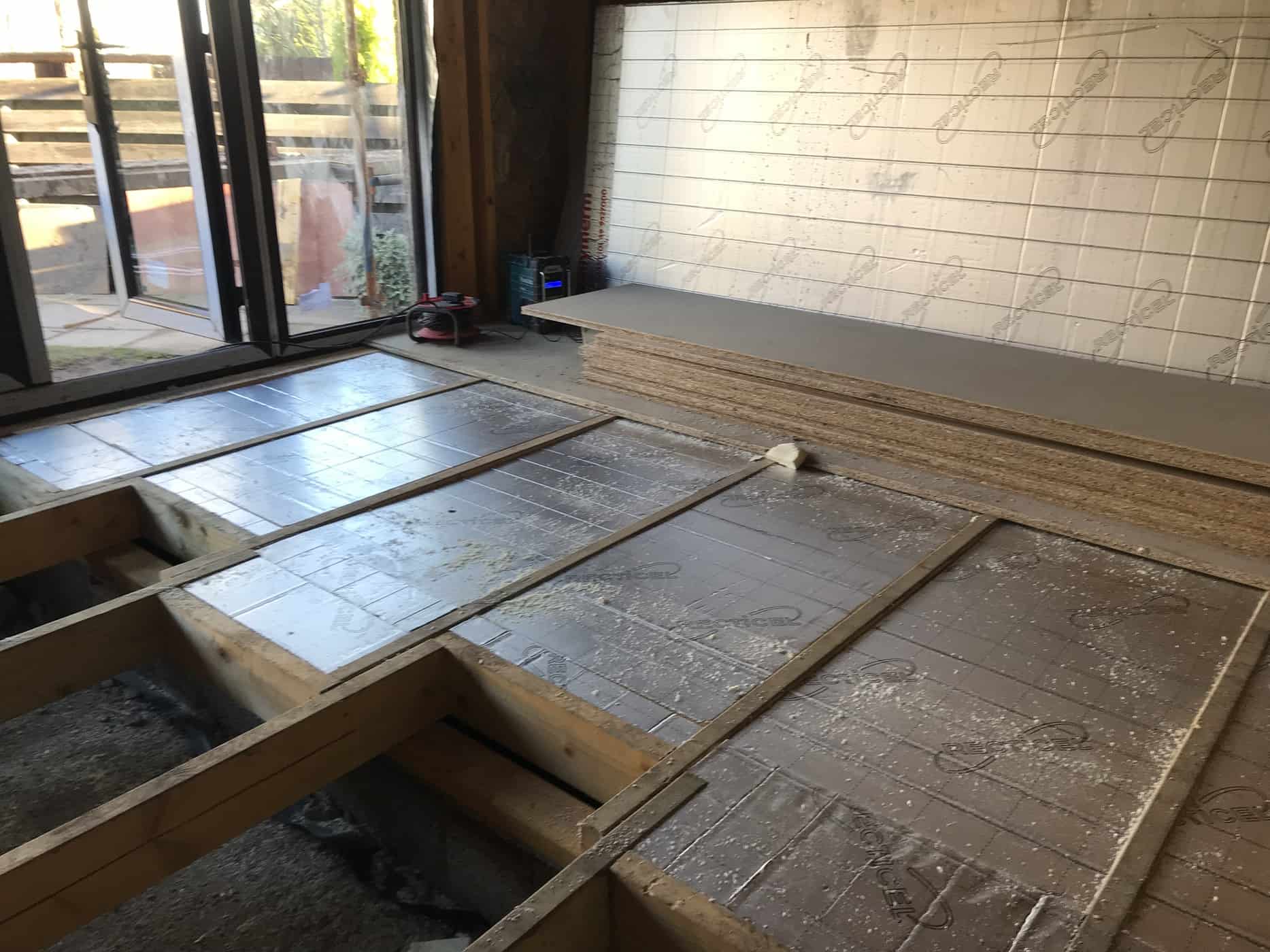
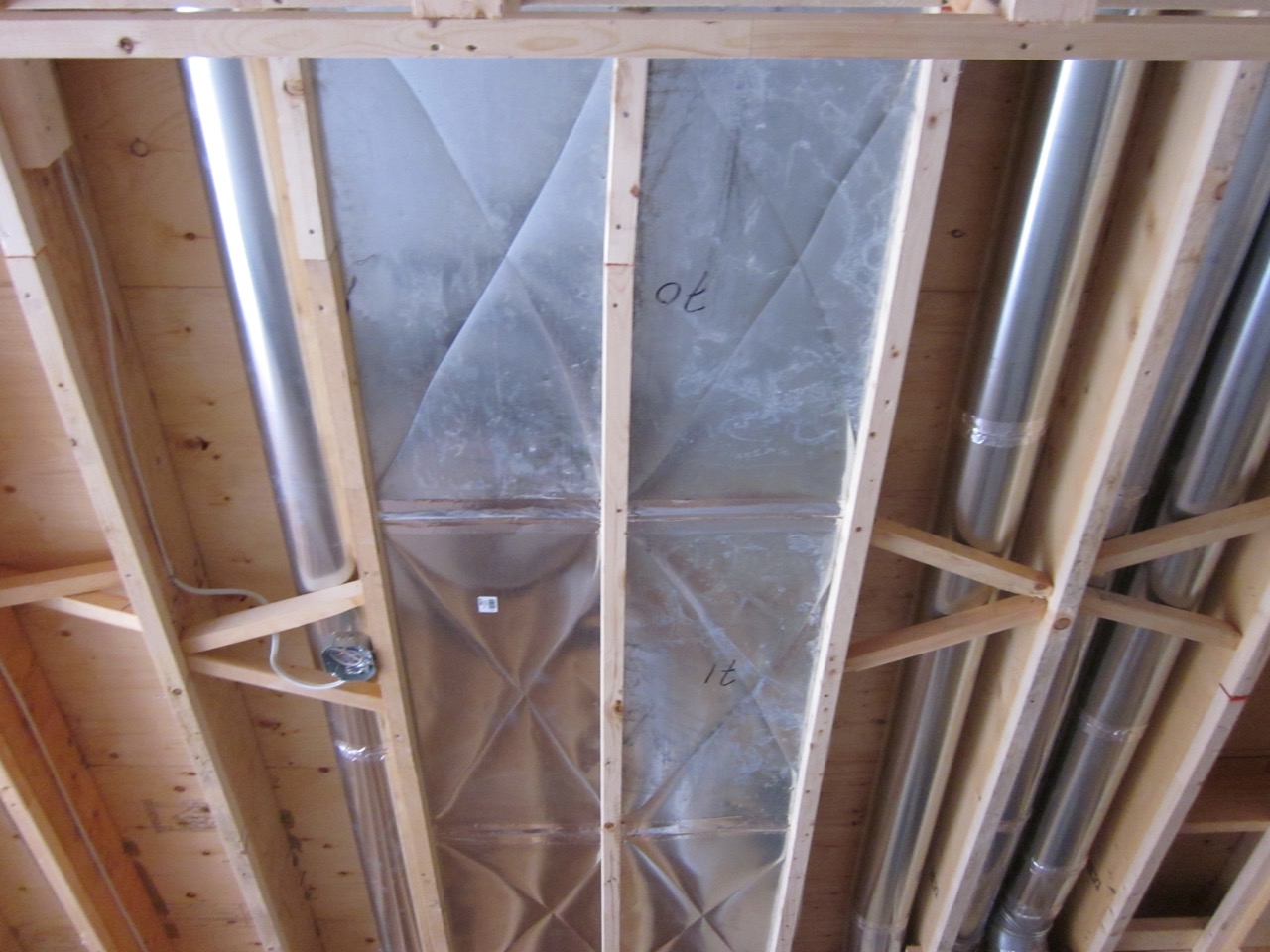
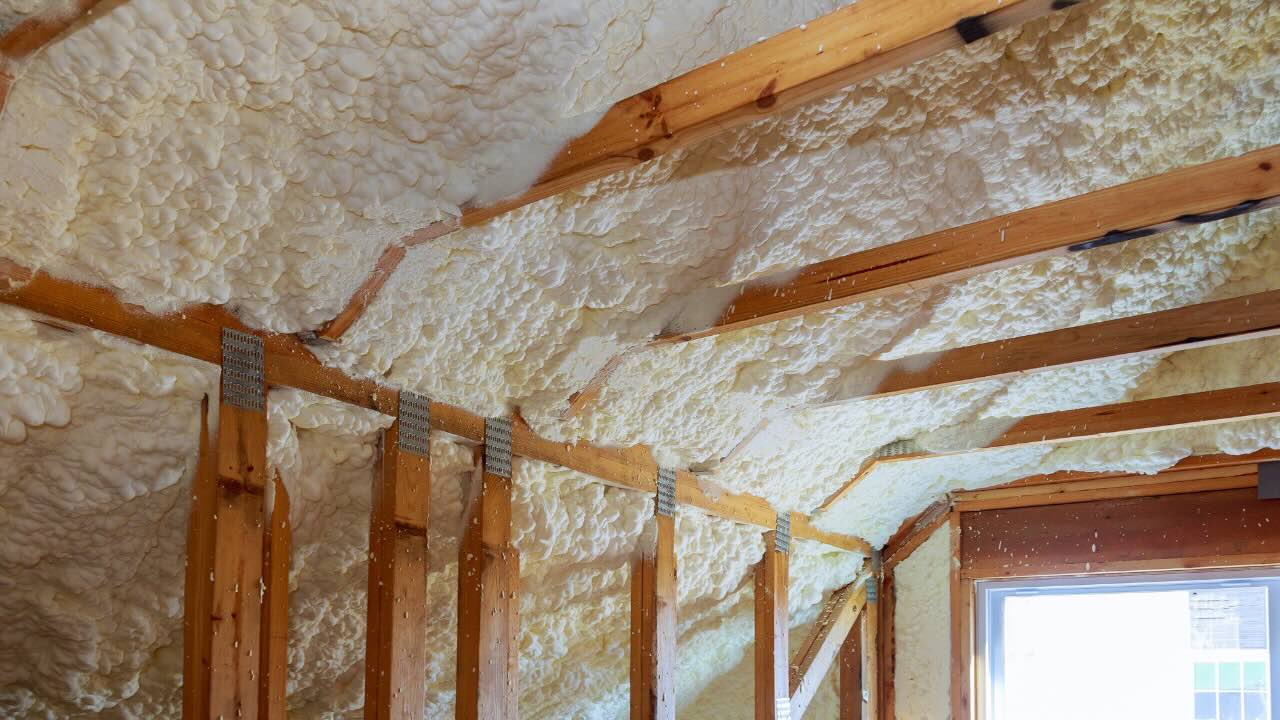
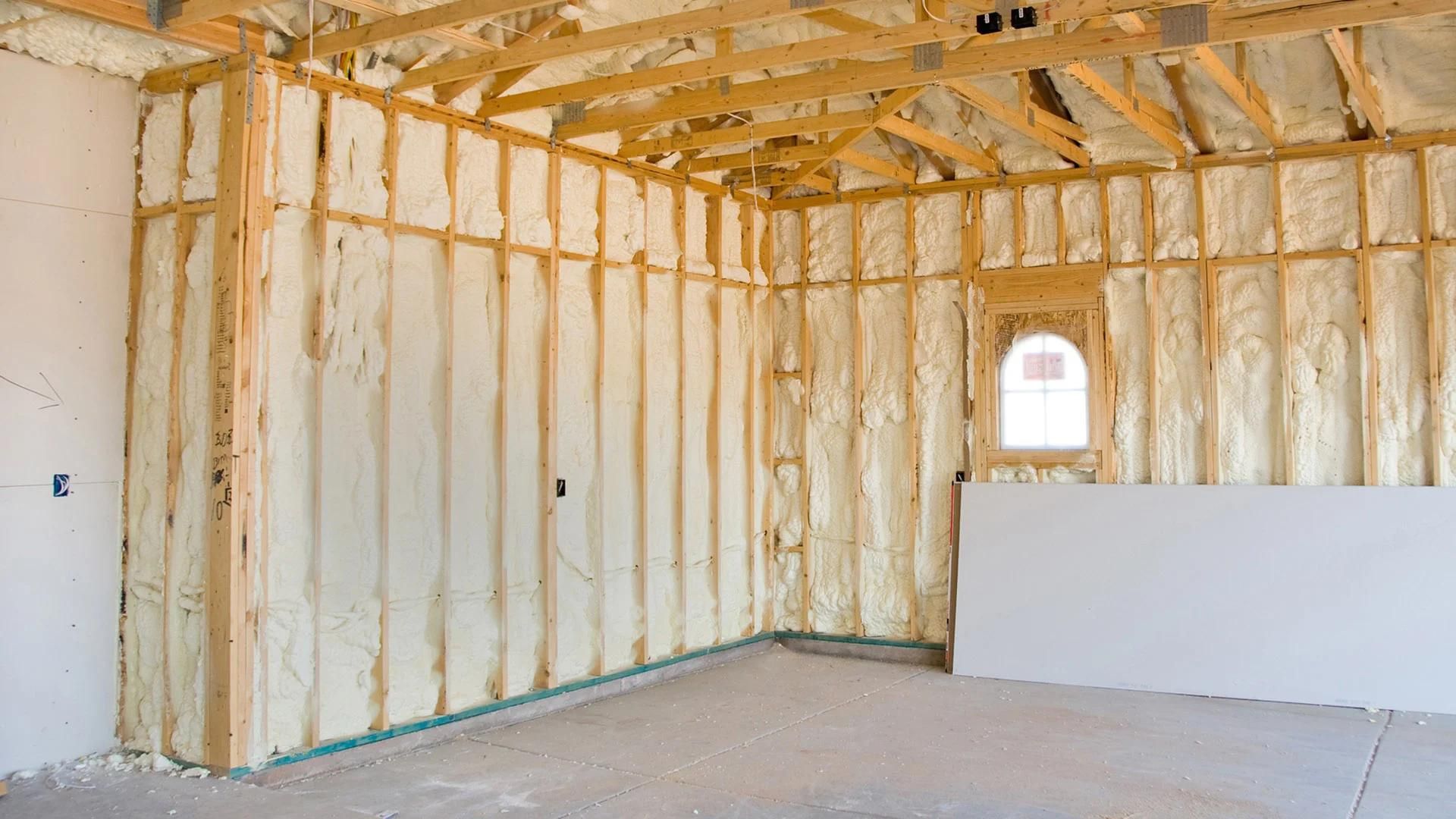
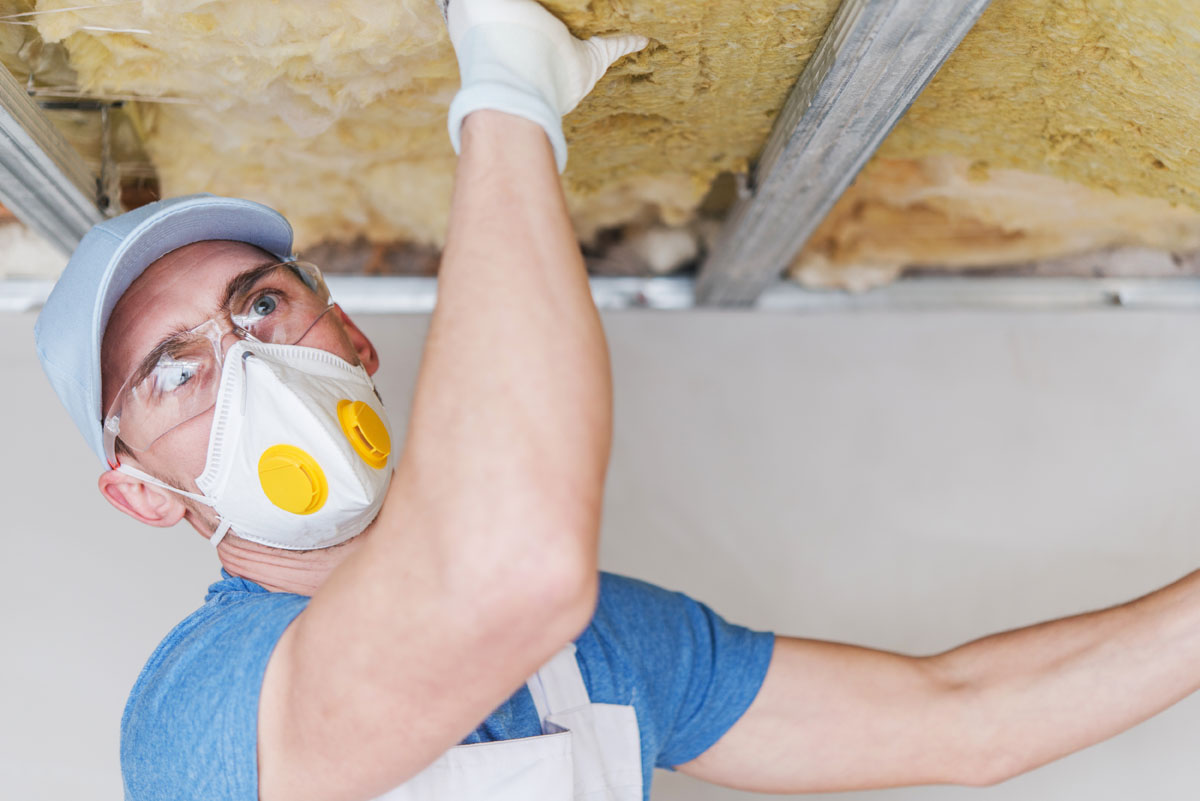

0 thoughts on “What Is The Best Insulation For Garage Doors”